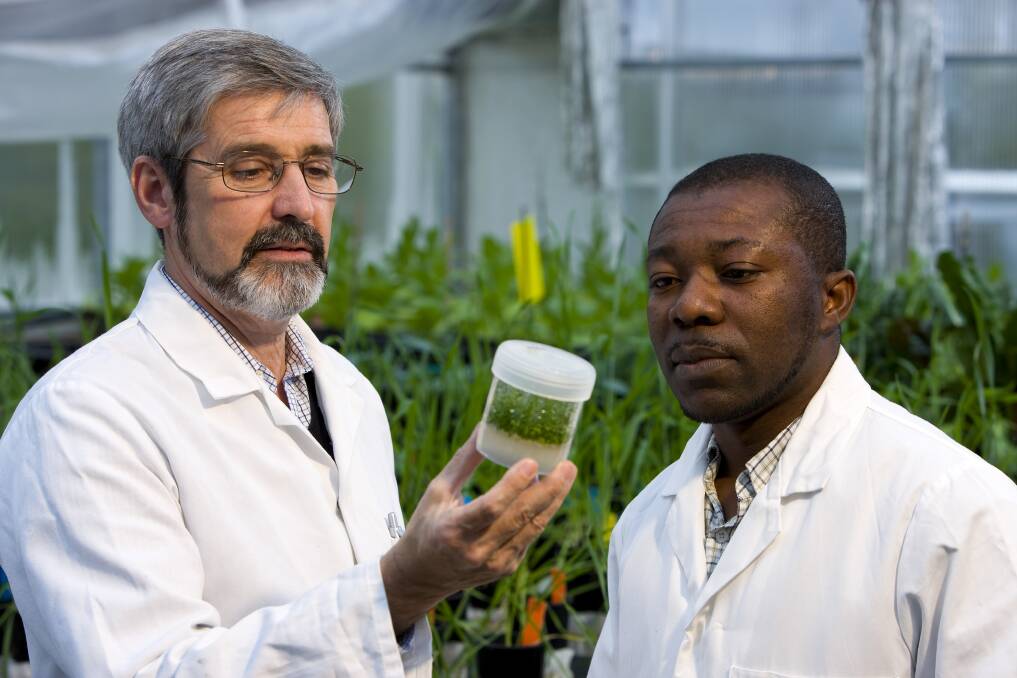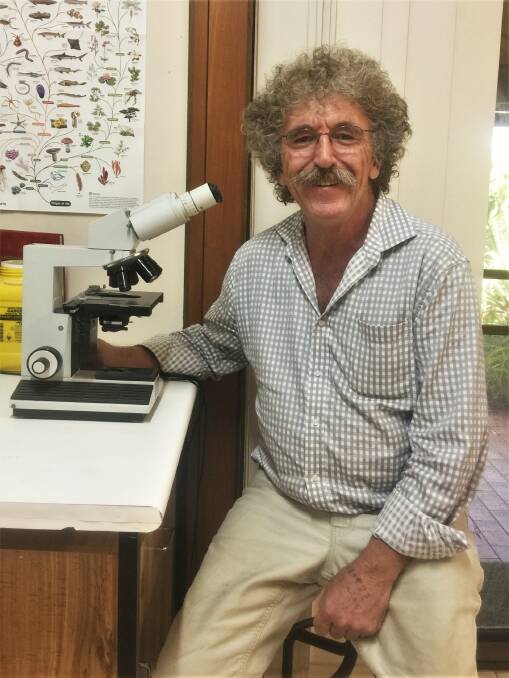
THE development of non-genetically modified frost-tolerant wheat for Western Australian growers and improving grain growth and yield using liquid potassium phosphate fertiliser are just two of the projects to receive funding from the Council of Grain Grower Organisation (COGGO).
Subscribe now for unlimited access to all our agricultural news
across the nation
or signup to continue reading
A total of six projects received funding from COGGO, with the aim of the research fund being to invest in innovative new research and development projects from across the whole supply chain that can demonstrate a direct benefit to WA grain growers.
The frost tolerance project was allocated $150,000 over two years and is set to be conducted by Murdoch University.
Agricultural biotechnology professor Michael Jones said they planned to use new breeding technologies, mainly gene editing, to try to increase frost tolerance.
"It will allow us to make changes to existing genes without any introduction of any external DNA, so it's sort of a targeted mutagenesis," Dr Jones said.
"The Office of the Gene Technology Regulator is going to make this form of gene editing not classified as GM, so it's just the same as any other breeding.
"All breeding is genetic manipulations and mutagenesis, which is non-GM, so this is a much more precise way of generating mutants."
There has been quite a lot of work using conventional approaches to try to tackle the problem of frost damage in wheat, but Dr Jones said they haven't really come up with any resolutions through conventional breeding.
"Frost damage can cost up to $400 million a year to the grain industry,'' he said.
"We have identified some anti-frost proteins which are naturally present in wheat and barley, so we're going to use this technology to increase the expression of these and hopefully confer an improved frost tolerance.
"It only has to be by two to three degrees, from -2 to -5, in order to avoid frost damage at critical periods which could make a lot of difference."
Dex Intelligence received $58,335 for one year to look into artificial intelligence for biosecurity, while Corrigin Farm Improvement Group was allocated $121,125 over two years for maximising fallow rotations with a Strip and Disc strategy to increase water use efficiency and subsequent crop yields across the Wheatbelt.

Facey Group was given $135,000 over two years to research if canola establishment is improved through the application of wetters to the seed in marginal conditions, while Stirlings to Coast Farmers received $80,000 for one year to look at the impact of stubble management on small conical snail mortality.
COGGO chairman Rhys Turton said expressions of interest for funding were received from 46 applicants from a cross section of industry, government, grower groups and research organisations.
"This was up 50 per cent on the number of expressions of interest received in the previous year and demonstrates the demand for funding of small catalytic R&D projects of relevance to grain growers in WA," Mr Turton said.
"COGGO is pleased to be able to support these ground-breaking research projects for the profitability and sustainability of the Western Australia grains industry."
The project on liquid potassium phosphate fertiliser is being conducted by Bioscience Pty Ltd and was allocated $150,000 over two years.
Bioscience managing director Peter Keating said the company had been looking at liquid and foliar fertilisers in intensive horticulture for a long time and initially did some work in broadacre farming 20 years ago.
"Back then, we were too soon as farmers didn't have the capacity to deliver liquids on their seeding bars, but that has now changed," Dr Keating said.
"Last year a research farmer, one of our clients, tried using the product we first made 20 years ago and couldn't believe how good the results were.
"He got about a 30pc growth improvement, higher nitrogen, phosphorus and potassium and it was the best looking lupins he'd ever grown."
Through the COGGO grant, Bioscience plans to run small plot demonstrations in three grower groups throughout WA.
Dr Keating said in those plots they would be optimising the application rates and comparing it to traditional methods of granular fertilisers in the area.
"The trials themselves will be done more or less independently, even though we design them and say what the treatments are, different people with the right equipment will actually do the seeding," he said.
"We're expecting to see higher yields that result from more rapid crop establishment and for less cost.
"The important thing is that the uptake of these liquids by plants is more efficient, if you can deliver them into the seed bed with some precision."
COGGO members voluntarily contribute 0.5pc of their own net farmgate value of production, which in turn enables COGGO to fund new projects in the areas of plant breeding and associated research and development.

